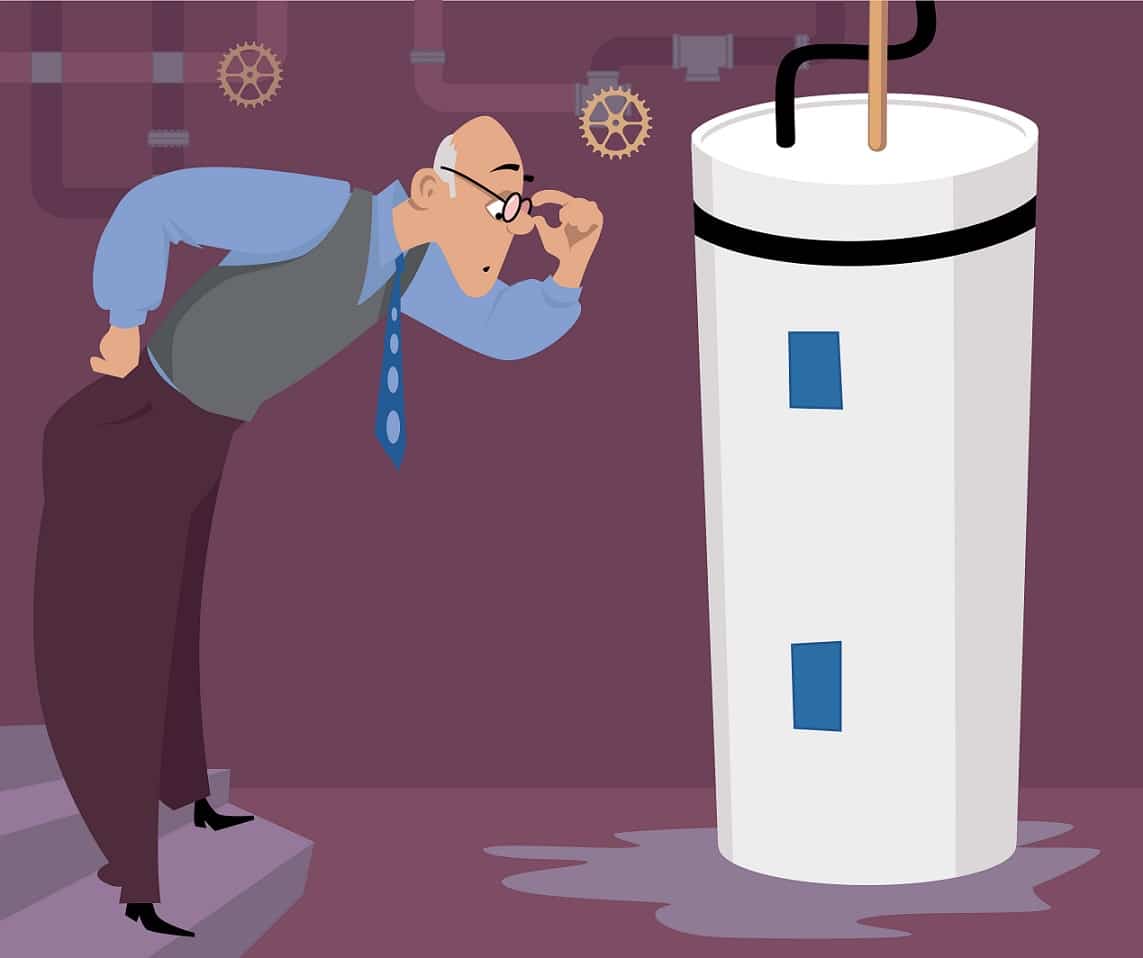6 Factors Affecting Your Water Heater’s Lifespan
Traditional water heaters last up to 8-12 years and modern ones last about 20 years. Look for gurgling sounds, dampness, and tinted water to know when to replace the heater.
The water heater is one of the most useful tools for your home unless you want to shiver in the cold while bathing. Besides bathing, washing dishes with cold water can be taxing. That’s why you need to ensure a long lifespan of your water heater.
However, like all other appliances, water heaters do not last forever. But by following these tips, you can increase its longevity and avoid issues like leaks and water damage.
Usual Lifespan of Water Heater
There are several different types of water heaters. Hence, their lifespan varies depending on the types. A traditional water heater lasts about eight to twelve years. If you can ensure proper maintenanceMaintenance is the routine care, inspection, and repair of a... More and care, you may add an additional two to three years to the average lifespan.
There are lots of water heaters available that are inexpensive. These appliances have only a six to eight-year warranty.
In contrast, the costlier ones have an eight to twelve-year warranty. You can’t repairRepair is the act of fixing or restoring damaged property, m... More a water heater if it has experienced too much damage.
To avoid buying a new water heater every time one malfunctions, or to avoid a messy basement flood cleanup, buying one with an extended warranty is a safe bet.
So, try to buy a water heater that offers at least a ten-year warranty.
But whatever heater you have, if your hot water isn’t working then you need to address this problem immediately.
Different Types of Water Heaters
Water heaters are available in various types & each has different lifespans. Here are some of the most common types of water heaters:
Tank Gas Water Heater
These are the most conventional water heaters. They last for eight to twelve years. The main reason these water heaters fail is the anode gets corroded over time.
Tank Electric Water Heater
These water heaters have a slightly longer lifespan than the gas water heaters and can last from ten to fifteen years.
As the name suggests, they are electricity based. Instead of having a gas burner, it has an electrical heating system.
These water heaters require regular maintenanceMaintenance is the routine care, inspection, and repair of a... More of the electrical components.
Tankless Gas Water Heater
The tankless gas water heater is the most modern one. Unlike the one with a tank, you can get a significantly longer lifespan for these water heaters.
On average, the tankless water heater will serve you perfectly for twenty years. Proper maintenanceMaintenance is the routine care, inspection, and repair of a... More will add ten more years to its lifespan.
Tankless Electric Water Heater
Tankless electric water heaters are almost the same as the tankless gas water heater. These water heaters will also last for twenty to thirty years with proper care & maintenanceMaintenance is the routine care, inspection, and repair of a... More.
The only issue you will face is a leak in the heat exchanger that may occur with time, so be on the lookout for potential water damage.
Factors Affecting Water Heater’s Lifespan
You need to look out for the following factors as they significantly influence the lifespan of water heaters:
1. The Pressure-Relief Valve
You will find a pressure relief valve in the traditional water heaters. These valves prevent the heaters from exploding from the build-up of excessive pressure inside the water heater.
Do regular check-ups to make sure your pressure relief valve is working smoothly.
2. The Anode Rod
As mentioned earlier, the anode rod is the most crucial part of your traditional water heater and it gets corroded easily. You will find the anode rod screwed on top of the gas/electric water heater.
If you notice any sign of corrosion, replace it immediately.
3. Limescale
Limescale is a curse for both tank and tankless water heaters. A simple amount of limescale can cause trouble in heating the cold water. The solutionA solution is a homogeneous mixture of two or more substance... More is to flush the heater with undiluted white vinegar.
Processes differ for a tanklessand a tank water heater. Follow the manufacturer’s manual for safety.
4. Sediments Clogged
Sediments will clog at the bottom of your tank. You need to flush your water heater once or twice a year to remove the sediments.
5. Gas Lines
If you own a gas water heater, do a monthly inspectionInspection is the careful examination and assessment of a pr... More to make sure the pipes don’t have cracks or are affected by corrosion. If you find any sign of corrosion or a cracked pipe, call in a professional to repairRepair is the act of fixing or restoring damaged property, m... More.
6. Water Leaks
If your water heater is set outdoors, you may not notice the leak or crack in the pipes. However, a leak or puddle below your water heater is a sign of severe damage.
If you find a leak in your water heater, turn off the water and power supply and call a plumber.
Signs to Change the Water Heater
Now that you have learned what affects your water heater’s lifespan, let’s talk about the signs that will tell you to replace it immediately:
1. Gurgling Sounds
You will encounter these strange noises because of sediment clogging inside your water heater. If these sediments clog too much, they will get heated & likely explode.
So, take proper steps once you hear gurgling sounds, otherwise a flooded basement may occur.
2. Dampness Around the Heater
Your water heater will create vapors. There is a possibility of moisture build-up which eventually creates dampness.
Dampness should be a concern because an intermittent leak might be responsible for such dampness.
3. Drop-in Temperature
Bathing in cold water is probably the worst way to start your day. Again, cold water is a sign that something is wrong.
There are two ways to solve this issue. One is to get help from a professional. In the worst case, your water heater has reached the end of its lifespan and you will need to get a new one.
4. Strange Tinting Appearance of Water
If you notice your hot water to have a tinted color, this is likely from rustRust is a reddish-brown oxide that forms on iron or steel du... More. That said, your water heater may be full of rustRust is a reddish-brown oxide that forms on iron or steel du... More too.
Often this is the primary sign of your water heater wearing out and it will soon start leaking.
5. Puddles of Water
If you notice puddles of water around your water heater, this is a red alert.
There’s no way to repairRepair is the act of fixing or restoring damaged property, m... More a water heater leaking this bad. You need to call in the professional as soon as possible & replace it with a new one.
Final Thoughts
Buying a new water heater is often considered gambling if you are on a tight budget. But if you must replace your old water heater, try purchasing an energy-efficient one. You will save thousands of dollars each year from repairRepair is the act of fixing or restoring damaged property, m... More costs. Besides, your water heater will have a longer lifespan than the traditional ones.













